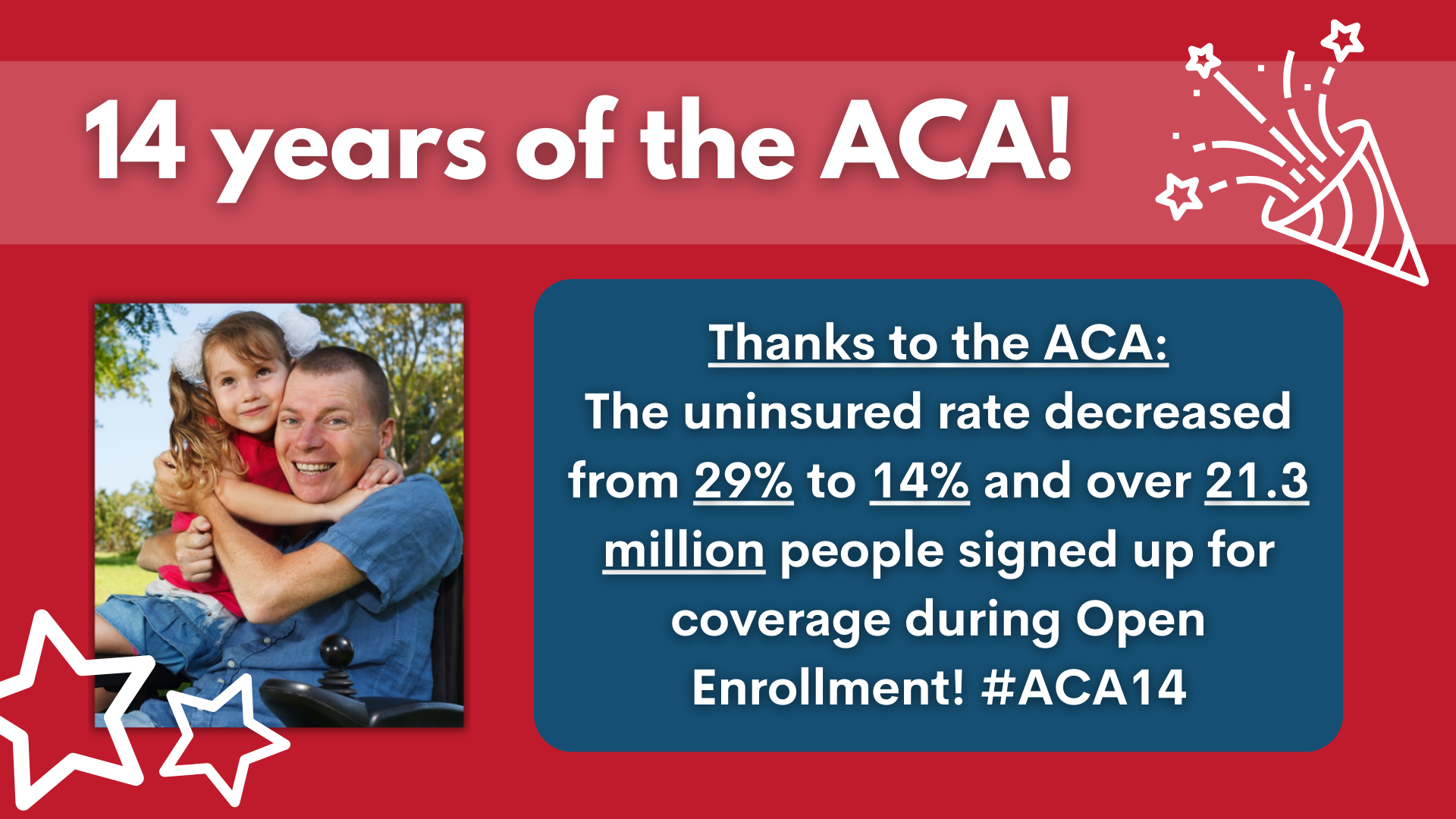THE AFFORDABLE CARE ACT TURNS 14!
March 23, 2024, marks the 14th anniversary of the Affordable Care Act! Despite multiple efforts to repeal and replace the ACA, it continues today, offering millions of Americans affordable, accessible, and continuous healthcare coverage.
This past Open Enrollment saw record numbers of ACA marketplace enrollments, with 21.3 million signing up for coverage and many states adopting Medicaid expansion. That is a lot to celebrate!
Thanks to the ACA, people can:
- Get coverage for essential health benefits
- Get vaccines, birth control, cancer screenings with no cost
- Experience a decrease in racial disparities in health coverage
- Don’t have to worry about pre-existing conditions when signing up for healthcare coverage
As of March 20, states have reported renewal outcomes for more than half of those enrolled in Medicaid/CHIP, according to data from the Kaiser Family Foundation (KFF) with 35.7 million renewals still remaining. 31% of those who completed the renewal process were disenrolled and 39.7 million enrollees were able to qualify for renewed coverage. The large range of disenrollment rates in each state varies, with the highest of 57% being in Utah and the lowest of 13% in Maine. Out of all states with available data, 70% of all those disenrolled were due to procedural reasons.
The Center for Medicare and Medicaid Services released an informational bulletin to remind states of compliance with federal renewal requirements. The Georgetown University Center for Children and Families (CCF) broke them down and called attention to lack of state resources for adequate oversight.
CCF summarized the Medicaid and CHIP provisions in the Biden Administration’s fiscal year budget for 2025. Relevant provisions include closing the coverage gap in non-expansion states, continuous Medicaid/CHIP coverage for children up to 36 months, maternal health support benefits, and improved home and community-based services.
CCF also reviewed states that had failed to submit Managed Care Program Annual Reports, bringing up issues of inadequate oversight of and lack of accountability. Recommendations made were to report the number of denials along with the outcomes of appeals from said denials and stick to planned actions for processing and analyzing data.
The Department of Health and Human Services announced the Biden Administration’s initiative to strengthen investments in person centered primary care. This initiative aims to improve health outcomes and lower costs in Medicaid/CHIP services.
The CHIRblog recapped an event sponsored by Arnold Ventures that focused on the No Surprises Act’s effect on consumers and challenges experienced with the independent dispute resolution process. The recording can be found here.
The White House released a press release on an executive order to advance women’s health research and innovation. Section 4 places an emphasis on “addressing health disparities and inequities affecting women, including those related to race, ethnicity, age, socioeconomic status, disability, and exposure to environmental factors and contaminants that can directly affect health.”
Review recommendations to CMS in which AAHD joined a coalition led by Community Catalyst and UNIDOS US, which consisted of over 100 organizations, in making about actions that could be taken to promote continuous Medicaid coverage during the Medicaid unwinding.
Archives of our weekly updates are available on the NDNRC website.

